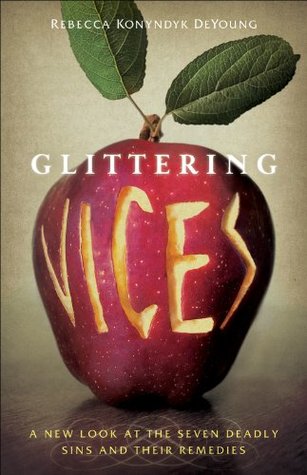More on this book
Community
Kindle Notes & Highlights
That day was a day of celebrating and feasting, despite 130° temperatures, grueling hours, the dangers of battle, and a spartan life in dusty canvas tents. Effectiveness in his mission required regular reminding of who he was and what he stood for. That reminder came in the form of a celebration—the enjoyment of a specially prepared food.
why both fasting and feasting are characteristic parts of the Christian life.
As Richard Foster remarks, “Fasting reveals the things that control us.”
Fasting heightens our appreciation for material goods, while also keeping this appreciation in its place, with room for the appreciation of spiritual goods too.
Fasting, secondly, increases our appetite for spiritual goods, and makes us keenly aware of our dependence on God, as Kallistos Ware notes:
The gluttonous eat with greed, not gratitude. Food is merely something to be used for their own gratification, rather than a good gift to be received and enjoyed.
Acknowledging the goodness of sex is the first step, because we can’t define lust as damaging or disordered pleasure-seeking unless there is a well-ordered, delightful form to which it fails to measure up.
The right view of this great good will avoid two traps. On the one hand, it will avoid degrading sexual pleasure into meaningless triviality or base instinct. On the other hand, it will avoid elevating it into something so spiritual that any ecstasy involved has to be a spiritual experience disconnecting us from the actual flesh involved.
Thomas Aquinas, who overemphasizes the procreative purpose of sex almost to the point of forgetting about its potential for intimacy, explicitly warns husbands not to use their wives indecently for their own sexual pleasure. This is “counter to the good of marriage,” he says—even to the point of being a worse offense than adultery—because it “breaks faith
N. T. Wright tells the joke about Moses carrying the commandments down from Mount Sinai. “ ‘Good news and bad news,’ he says. ‘The good news is—we’ve got them down from forty to ten. The bad news is—adultery is still in.’
Like nitroglycerin, it can be used either to blow up bridges or heal hearts.
The trouble is lust’s reductive impulses: to reduce sexual pleasure to one’s own individual gratification, apart from a relationship to a person; or to reduce it to the only end we have in view, apart from all its other purposes; or to strip it down to its purely physical dimension, apart from its integration into our full humanity.
Good sex has an interpersonal and social dimension, a dimension that brings us into connection and relationship with others.
In lust, sexual pleasure is divorced from love and mutual self-giving.
As Pieper puts it, lust wants “it,” while proper eros desires a beloved person.
The dynamics of lust’s search for pleasure are like those operating in its close cousin, gluttony. Their excessiveness reduces something designed for more than pleasure to mere pleasure, and reduces even the fullness of that pleasure to mere self-gratification.
Eros, so says Aristophanes, is our yearning to be reunited with our other half; it is our desire for completeness.
As with gluttony, the more single-mindedly we pursue something for the pleasure we can get from it, the less likely we are to find our desire for pleasure satisfied.
The paradox of pleasure, however, as they also noted, is that you can’t get it by seeking it directly.
Aristotle said that pleasure is an effect of certain activities done in a certain way; it is the fruit of activity, but not something that can be produced or achieved without the activity itself.
Holy Spirit within you, which you have from God” (1 Cor. 6: 19). Are they sacred spaces or a place for cheap thrills?
Aquinas and Gregory call lust’s most grave offspring vice “blindness of mind”—the inability to recognize and appreciate goods higher than the pleasure of the flesh or beyond the moment of gratification.


